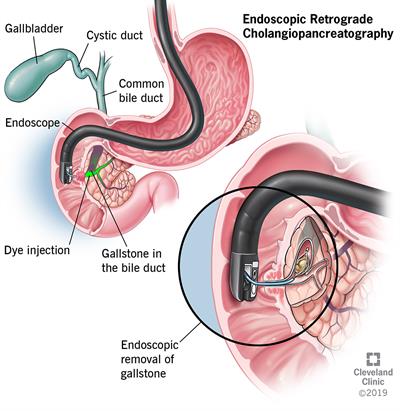Gallstones are small, hard deposits in the gallbladder, a small organ under the liver. The gallbladder stores bile, a digestive fluid that helps break down fats in the small intestine. Gallstones can range in size from a grain of sand to a golf ball and can be made up of cholesterol or other substances, such as bilirubin, a waste product produced by the liver.
Gallstones can develop when there is an imbalance in the chemicals that make up bile, causing it to harden and form stones. Risk factors for developing gallstones include being overweight or obese, having a family history of gallstones, being female, and having certain medical conditions such as diabetes and liver disease.
BACA JUGA: Can Diet Soda Cause Diabetes
Gallstones can be asymptomatic but may require treatment when they cause pain, nausea, vomiting, and bloating. Treatment options may include medication to dissolve the stones, shock wave therapy to break them up, or surgery to remove the gallbladder.
The Best Diet with Gallstones
Following a healthy, balanced diet low in fat and fiber is essential if you have gallstones. This diet can help you manage symptoms and may even help prevent further gallstone formation.
Here The Best Diet with Gallstones; are some dietary guidelines to follow if you have gallstones:
- Eat a low-fat diet: Avoid fried, greasy, and fatty foods, as they can trigger symptoms of pain and nausea. Stick to lean proteins such as chicken, fish, and beans, and limit your intake of dairy products like cheese and butter.
- Increase your fiber intake: High-fiber foods such as fruits, vegetables, whole grains, and legumes can help you maintain healthy digestion and prevent constipation, which can contribute to gallstone formation.
- Stay hydrated: Drinking plenty of water can help keep your bile flowing and prevent the formation of new stones. Aim for at least eight glasses of water per day.
- Avoid rapid weight loss: Rapid weight loss can increase your risk of developing gallstones, so losing weight slowly and steadily over time is important.
- Limit alcohol consumption: Excessive alcohol consumption can irritate your gallbladder and liver, so it’s important to limit your alcohol intake or avoid it altogether.
- Consider smaller, more frequent meals: Eating smaller, more frequent meals throughout the day can help manage symptoms of gallstones and improve digestion.
It is important to consult with a doctor or registered dietitian to develop a personalized diet plan that meets your specific needs and health goals.
ARTIKEL LAIN: What is diet definition?
7 Foods to Avoid with Gallstones List
If you have gallstones, avoiding certain foods that can exacerbate your symptoms or contribute to forming new stones is important. Here are some foods to avoid:
- High-fat foods: Fried foods, fatty meats, butter, cheese, cream, and other high-fat dairy products can trigger gallstone symptoms.
- Processed and refined foods: Avoid processed and refined foods high in sugar, salt, and unhealthy fats. This includes processed snacks, sugary drinks, and fast food.
- Spicy foods: Spicy foods can irritate your digestive system and worsen symptoms of gallstones.
- Chocolate: Chocolate contains high levels of fat and caffeine, which can cause gallbladder contractions and trigger pain.
- Caffeine: Caffeine can also cause gallbladder contractions and worsen symptoms. Avoid coffee, tea, and other caffeinated beverages.
- Alcohol: Alcohol can irritate your gallbladder and liver, so limiting or avoiding your intake is important.
- Gas-producing foods: Certain foods, such as beans, broccoli, onions, and cabbage, can cause gas and bloating, worsening gallstone symptoms.
It’s important to note that everyone’s tolerance for certain foods may differ, and you may need to experiment with your diet to determine what works best for you. Consult with a doctor or registered dietitian for personalized advice on managing your gallstone symptoms through diet.





















